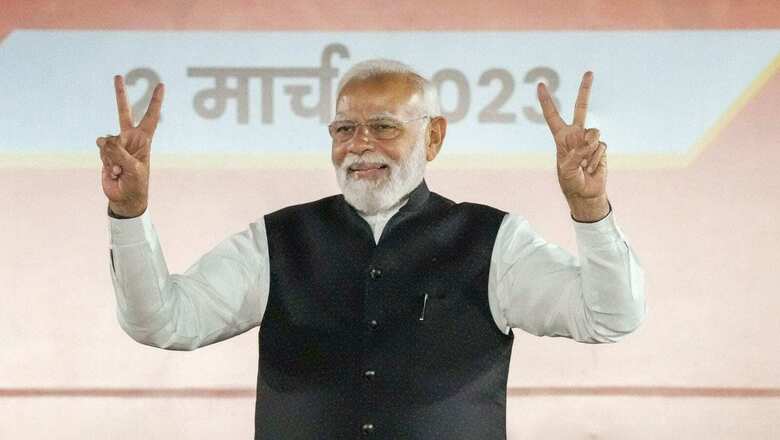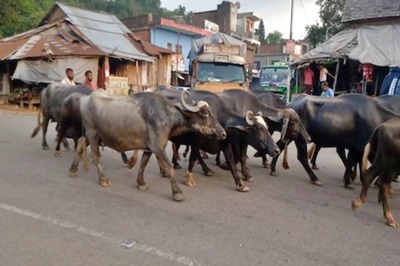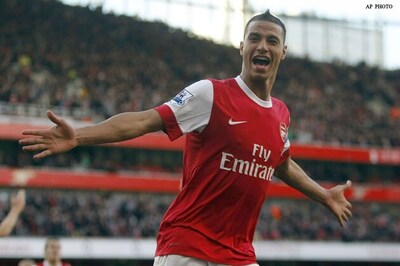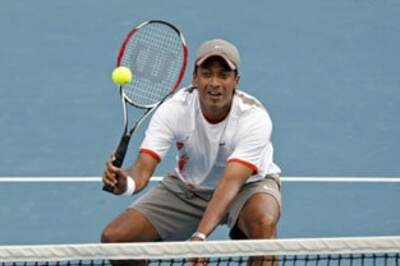
views
In 2003, the then Indian skipper Sourav Ganguly needed a wicketkeeper-batsman for the One Day International format. He walked up to Rahul Dravid, who was never a natural wicket-keeper, and asked: “Will you try?” Being one of the greatest Indian batsmen who walked the cricket field, Dravid could easily have turned it down. But the team needed it. It had to be done. Dravid did not look at keeping as something beneath him.
He agreed.
He ended up with 84 catches and stumping, fourth highest by any Indian keeper, right behind MS Dhoni, Nayan Mongia and Kiran More.
What sets Narendra Modi apart from previous Prime Ministers is that he does the so-called small things with the same energy and commitment as the big ones. He does not consider sweeping the streets to send out a message beneath his office.
Here are seven such ‘small’ accomplishments which have made a big difference.
Mission Northeast
The thumping victories of the BJP and its alliances in Tripura, Meghalaya and Nagaland point to its unceasing Northeast focus. After coming to power, Modi created the Ministry for Development of the North East Region (DONER) and unleashed a slew of infra and connectivity projects. Besides securing the region from India’s enemies, this push shows up the PM’s efforts in sharp contrast to the political neglect of the Congress towards NE.
And the Congress has resolved not to learn from past mistakes. After the shockingly dismal results, Congress president Mallikarjun Kharge said his party’s popularity had “nothing to do” with the mandate as these were “small states’ elections”.
As PM, Manmohan Singh had made 37 trips to the Northeast in 10 years between 2004 and 2014. Of these, 23 were made to his adopted home and the state from which he was sent to Rajya Sabha, Assam. Only 14 of the other Northeast trips were made to seven other states — Arunachal Pradesh, Manipur, Meghalaya, Mizoram, Nagaland, Sikkim and Tripura. During UPA2, he did not visit Tripura, Meghalaya, or Nagaland.
PM Modi has in just eight years made 49 Northeast visits. Of these 25 were to Assam, 24 to the rest.
While the entire Northeast has 25 Lok Sabha seats (just UP has 80, Maharashtra 48), the BJP’s developmental push and the RSS’s quiet penetration has made the region a showcase of the Modi government.
Talking about toilets
PM Modi’s Swachh Bharat Abhiyan has not just built lakhs of toilets, it has brought a generational awareness and change akin to the Chipko movement for the environment. But this scheme is relentlessly mocked by the Opposition even now.
No PM before Modi spoke so passionately about the need for hygiene and cleanliness or did so much on the ground. Around 55 Crore people in villages were without a toilet before 2014. Under Swachh Bharat Mission (Gramin), 10.28 crore toilets were built in 36 states and Union Territories, 6,03,175 villages were declared open defecation free, and rural sanitation now has near 100 percent coverage.
Engaging tiny nations
On lines of ancient India’s glorious land and maritime history, Narendra Modi has been engaging the smallest nations — landlocked, sea-fronted, and islands.
For instance, he launched the Initiative for the Resilient Island States (IRIS) for developing infrastructure of small island nations. He said it brought hope and confidence to the world’s most vulnerable countries. He participated in the India-Caribbean (CARICOM) Island Summit and the Forum for India-Pacific Islands Cooperation (FIPIC).
From Africa to central Asia, Modi has engaged with the smallest of nations, giving India a strategic depth and advantage it did not have since Independence. And internationally making Bharat the voice for the weak.
Speaking with children
While Jawaharlal Nehru as PM shifted Children’s Day from the United Nations-sanctioned November 20 to his own birthday on November 14, Narendra Modi has engaged with children in more concrete ways.
The PMCares fund covers several aspects of children’s health and education. Juvenile justice rules have been tightened, facilities for the girl child widened, and meals properly tracked.
His guidance and conversations with children before exams are again mocked by his rivals. But such little engagements leave deep imprints on coming generations.
Water in every tap
In 2014, only 31 percent of Indian rural households had tap water. Today, four years after the launch of the Jal Jeevan Mission, 58.41 percent of village households have got water on tap.
It is beyond the imagination of the affluent in cities what it means to not have a tap or shower in the house. Yet, for seven decades, seven out of 10 households in our villages did not have it. A tap is ostensibly a small thing. Yet, it took PM Modi to begin rapidly fixing it.
LPG for women
Just like tap water and toilets, LPG cylinders under the PM’s Ujjwala scheme have been changing women’s lives, health, productivity, and the dynamics of the household. Hours of cooking in front of smoke ovens exposed them to grave health dangers and left them with little time to pursue a career or pastimes.
In 2014, just 14.5 crore households had an LPG connection. Today, that number is 34.5 crore. Domestic LPG sales have gone up by 59 percent.
Bank accounts for all
Lastly, the massive push to open bank accounts for the poor under the Jan Dhan scheme is now a case study in financial inclusion. Previous PMs have nationalised private banks, made big promises in banking, but none have gone to each citizen and exhorted them to open a modest bank account. It was, again, a job too lowly for a Prime Minister.
But Narendra Modi unlocked his entire cadre strength to sweep in the applicants. These account holders — labourers, domestic workers, small shopkeepers, drivers, farmers — were then to benefit directly from the government. They were no longer faceless in the economy.
During Covid alone, nearly Rs 40,000 crore was sent to these accounts through Direct Benefit Transfer (DBT). Rs 6 trillion (USD 74 billion) was transferred to beneficiaries under DBT in FY22.
When talking about Narendra Modi’s accomplishments, one may tend to get stuck at the big things: Fifth largest economy, scrapping Article 370, GST, IBC, Ram Mandir, Balakot strike…
But perhaps his bigger accomplishments lie in his attention to the small things. Quoting Vincent Van Gogh: “Great things are done by a series of small things brought together.”
Abhijit Majumder is a senior journalist. Views expressed are personal.
Read all the Latest Opinions here




















Comments
0 comment